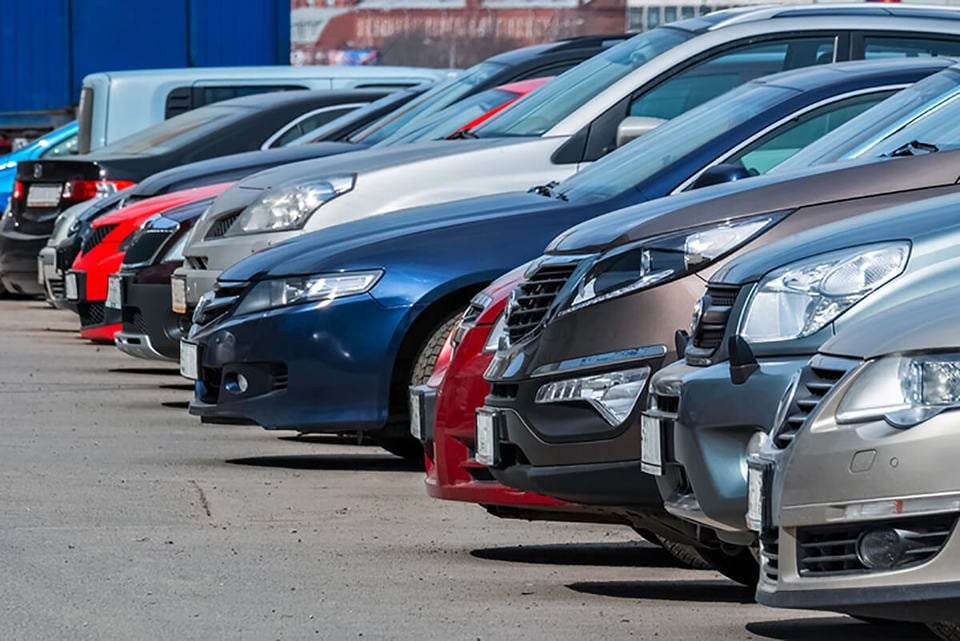For the first time since March 2023, average used car values at three years and 60,000 miles showed an increase in February, according to Cap HPI.
While it was a small increase of just 0.7%, equivalent to £50, it was the fourth largest upward movement in February since Cap Live was launched in 2012.
The average movement over the past 11 years in February is 0.2%.
Cap HPI data also shows that values at the one-year age point increased by 0.2%, while values at the five-year point went up by 0.6%.
However there was a 0.6% decline for older cars, not helped by some high mileage cars proving relatively undesirable.
Derren Martin, director of valuations at Cap HPI, said: “Overall, the average movements in Cap Live values point to a stable-to-strong used car market, following a relatively normal seasonal pattern for the first two months of the year.
“The market remains strong, retailers are busy, and wholesale supply levels are well under control.” With new 24 plates from Friday (March 1), Martin expects there to be increased volumes in the used market, from fleet returns and part-exchanges, over the next few months.
“There will also be strong new car offers, particularly on battery electric vehicles (BEVs), as manufacturers chase market share whilst attempting to hit stringent ZEV mandate targets,” he added.
However, he believes that these increased volumes are unlikely to adversely affect used values until April at the earliest, and even then, any effect is unlikely to be overly harsh.
Superminis were the strongest mainstream sector, increasing by 2.4% at both one and three years old, equivalent to £375 and £250, respectively.
Some of the largest increases were for the Hyundai i20, up 3% or £300, the Renault Clio, up 3% or £260, the Seat Ibiza, up 4% or £400, and the Vauxhall Corsa, up 5% or £400.
These types of vehicles have been in particular demand, says Cap HPI, and there are fewer of them around – a 14% reduction in sold trade data since 2019, partly due to the dominance of SUVs.
Used battery electric vehicles 'poorest performers'

BEVs were the weakest fuel type, dropping by 1.7% or around £375 at three years old in Cap Live in February.
While most BEVs continued to experience a decrease in value, some models did show a positive movement.
Examples include the Seat Mii (1.8% or £125), Renault Zoe (1% or £85), and Mercedes EQA (1.9% or £365).
At the one-year age, BEV values decreased by 2.3%, equivalent to around £850, in February due in part to the strong new car offers available, with some discounts of up to £15,000 or 30% off the list price.
Used BEV volumes continue to rise, and Cap HPI says it has received almost double the amount of sold data compared to this period last year.
The first two months of this year have seen almost a quarter of last year's total sold volume already.
Cap HPI reports that more BEVs are entering the used wholesale market than ever; they are selling, and values are holding up better than last year, primarily due to last year’s severe realignment.
However, it said average values are still dropping, while petrol and diesel cars are increasing by 1.2% and 0.5% respectively.
Separate analysis by Indicata suggested that recent manufacturer-based tactical new car registrations had impacted the used market, particularly for second-hand EVs.
Its Market Watch report suggests that used EV prices continued to show signs of levelling off, with values for fully electric used cars falling by just 0.8% in January, following a 1% fall in December.
Martin concluded: “March is generally a month where values do not move by much, with the strongest movement being 0.5% up, in both 2023 and 2014. In 2022, values dropped by 2.1%, so, there can be variation, but this time around, there is no reason to suggest anything untoward or anything other than a continuation of small positive movements.”
To understand how manufacturers optimise vehicle residual values, click here.






















hannanahmad - 13/09/2024 15:14
The market situation is getting such that I have seen most people are reluctant to buy new cars these days. Instead, they are aiming to trade their old vehicles. What you told is a case back in February 2024, when used car values at three years and 60,000 miles increased by 0.7%, marking the first rise since March 2023, according to Cap HPI data. While this was one of the largest February increases in over a decade, showing a stable and strong used car market. Superminis, like the Hyundai i20 and Vauxhall Corsa, saw significant value boosts. However, older cars and battery electric vehicles (BEVs) performed poorly, with BEVs dropping by 1.7%. Despite rising used BEV volumes, values are still decreasing, while petrol and diesel cars are gaining in value.